Recent Blog Posts
Who Owns Your Car When You File Bankruptcy in Texas?
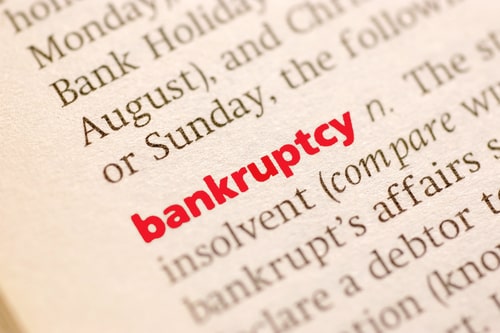 When facing financial hardship, many people consider filing for bankruptcy to eliminate overwhelming debts and get a fresh start. However, this raises an important question regarding valuable assets like cars and motorcycles. For example, who owns the vehicle if you file for bankruptcy? A Texas bankruptcy lawyer can help break down the complex legal ownership rights to your car when navigating the steps.
When facing financial hardship, many people consider filing for bankruptcy to eliminate overwhelming debts and get a fresh start. However, this raises an important question regarding valuable assets like cars and motorcycles. For example, who owns the vehicle if you file for bankruptcy? A Texas bankruptcy lawyer can help break down the complex legal ownership rights to your car when navigating the steps.
What is the Difference Between Chapter 7 and Chapter 13 Bankruptcy?
To understand vehicle ownership in bankruptcy, you must first comprehend the contrast between the two most common bankruptcy filings, Chapters 7 and 13. Chapter 7 bankruptcy involves liquidating your non-exempt assets to eliminate all eligible debt. This provides a quick discharge, but assets may be surrendered to creditors. Conversely, Chapter 13 bankruptcy proposes a 3-5-year debt repayment plan to repay creditors with future earnings over time.
The Automatic Stay Explained
 As soon as a bankruptcy petition is filed, the automatic stay immediately goes into effect to halt most collection activities and allow the debtor to organize their finances. The automatic stay is an injunction imposed against certain creditors who want to start or continue taking action against a debtor or the debtor’s property. It is important to note that in some situations, there may be no automatic stay at all, or there may be only an automatic stay if the debtor obtains a court order that imposes the automatic stay. A Texas bankruptcy lawyer can help you figure this out and what you may experience specifically for your case.
As soon as a bankruptcy petition is filed, the automatic stay immediately goes into effect to halt most collection activities and allow the debtor to organize their finances. The automatic stay is an injunction imposed against certain creditors who want to start or continue taking action against a debtor or the debtor’s property. It is important to note that in some situations, there may be no automatic stay at all, or there may be only an automatic stay if the debtor obtains a court order that imposes the automatic stay. A Texas bankruptcy lawyer can help you figure this out and what you may experience specifically for your case.
What Exactly Does the Automatic Stay Do?
An automatic stay presses pause. It freezes any efforts by creditors and debt collectors to collect on debts that came due before the bankruptcy was filed. They cannot file lawsuits, garnish wages, repossess cars or homes, shut off utilities, send demand letters, make collection calls, or take any other steps to enforce, collect, or create liens against debts owed before filing. The purpose is to bring everything to a screeching halt so that debtors have some breathing room under bankruptcy court protection to get their affairs in order.
Can Your Wages Be Garnished for Student Loans in Texas?
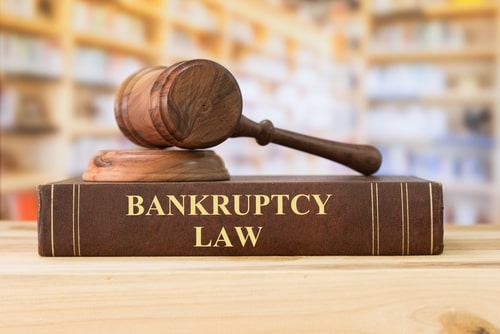 If you default on your federal or private student loans, you may wonder if your wages can be garnished to pay back the debt. Unfortunately, the answer is yes—your wages can be taken involuntarily under certain circumstances to satisfy unpaid student loans. A Texas bankruptcy lawyer can help you understand what can legally happen in your situation.
If you default on your federal or private student loans, you may wonder if your wages can be garnished to pay back the debt. Unfortunately, the answer is yes—your wages can be taken involuntarily under certain circumstances to satisfy unpaid student loans. A Texas bankruptcy lawyer can help you understand what can legally happen in your situation.
When Wage Garnishment Is Allowed for Federal Student Loans
The federal government can seize your assets, including up to 15% of your disposable pay, to repay the loan if you default on your student loans. This applies to federal Direct Loans and FFEL Program loans held by the Department of Education. The wage garnishment process usually begins only after you have become seriously delinquent on your loan and have ignored requests for voluntary repayment. Before garnishing wages, the Department of Education will notify you of its intent to initiate proceedings.
Can You Have a Good Credit Score After Bankruptcy?
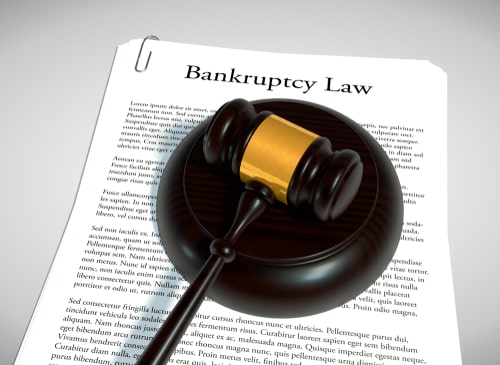 Filing for bankruptcy can seem like a last resort when faced with a consistently growing debt pile. It is understandable to worry about the long-term impacts on your financial life. However, bankruptcy does not have to ruin your credit score forever. With some strategic steps, you can rebuild your credit and improve your score after bankruptcy. A Texas bankruptcy lawyer can help point you in the right direction and help you properly go through the bankruptcy process.
Filing for bankruptcy can seem like a last resort when faced with a consistently growing debt pile. It is understandable to worry about the long-term impacts on your financial life. However, bankruptcy does not have to ruin your credit score forever. With some strategic steps, you can rebuild your credit and improve your score after bankruptcy. A Texas bankruptcy lawyer can help point you in the right direction and help you properly go through the bankruptcy process.
The Bankruptcy Process and Your Credit
When you file for Chapter 7 or Chapter 13 bankruptcy, the court discharges some or all of your eligible debt. However, the bankruptcy remains on your credit report for 7-10 years, depending on the chapter you filed. This can cause an immediate drop in your credit score.
The good news is credit scoring models, and lenders understand that bankruptcy does not necessarily define your commitment to paying off debt. You can gradually rebuild your score with consistent, responsible credit behaviors in the months and years after your bankruptcy discharge.
What Rights Do You Have During a Foreclosure?
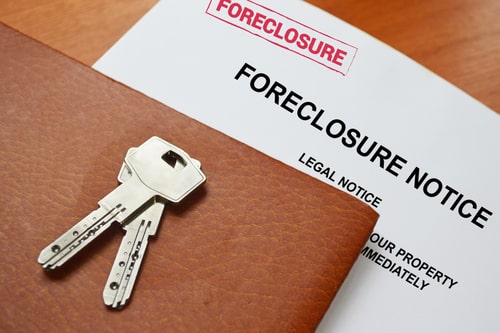 Going through a foreclosure can be an incredibly stressful and uncertain time. As a homeowner in Texas facing foreclosure, you still have certain rights that you should understand to best protect yourself during the process. Awareness of your rights can help you make informed decisions about the next steps. A Texas home foreclosure lawyer can point you in the right direction.
Going through a foreclosure can be an incredibly stressful and uncertain time. As a homeowner in Texas facing foreclosure, you still have certain rights that you should understand to best protect yourself during the process. Awareness of your rights can help you make informed decisions about the next steps. A Texas home foreclosure lawyer can point you in the right direction.
You Have the Right to Receive Notices
Lenders and mortgage servicers in Texas must provide homeowners with notices at specific points during the foreclosure timeline. These required notices include:
- Notice of Default - Sent when you have missed or are late on mortgage payments, giving you at least 20 days to become current on payments before further foreclosure proceedings.
- Notice of Acceleration - Sent if you do not become current on payments in the allotted timeframe, indicating that the mortgage holder may accelerate the mortgage and require immediate payment of the outstanding loan balance.
Deciding if Bankruptcy is the Right Choice
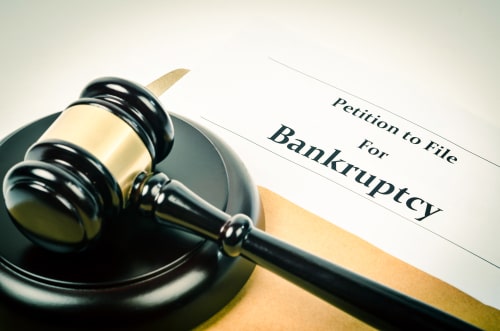 Filing for bankruptcy can provide much-needed relief if you are drowning in debt, but it also comes with long-term consequences. Determining if you qualify and weighing the pros and cons takes careful consideration.
Filing for bankruptcy can provide much-needed relief if you are drowning in debt, but it also comes with long-term consequences. Determining if you qualify and weighing the pros and cons takes careful consideration.
You may feel desperate for an immediate solution, and filing for bankruptcy is the apparent quick fix. However, visualizing how this decision will impact your financial future over the next several years is vital. A Texas bankruptcy lawyer can help you determine if this is your best option.
Am I Eligible to File for Bankruptcy?
Eligibility hinges on several factors, starting with what chapter of bankruptcy makes the most sense. Chapter 7 liquidation eliminates most unsecured debt, while Chapter 13 restructures obligations into more manageable payments. The specific qualifications differ slightly, and knowing how this can affect you and your situation is essential.
Bankruptcy Vs. Alternatives
 Facing unmanageable debts can leave you weighing options like bankruptcy and other alternatives. There are pros and cons to each approach. Before you decide, it is important to know how each option works so you can discuss which is most ideal for you with a Texas bankruptcy attorney.
Facing unmanageable debts can leave you weighing options like bankruptcy and other alternatives. There are pros and cons to each approach. Before you decide, it is important to know how each option works so you can discuss which is most ideal for you with a Texas bankruptcy attorney.
Attempting Mortgage Loan Modification
If you are facing unmanageable debts from burdensome mortgage payments, consider pursuing a loan modification. This involves adjusting the loan terms, often through extended repayment terms or reduced interest rates, to lower ongoing monthly payments to more affordable levels. To qualify, you would need to document qualifying financial hardship
Potential benefits of a successful loan modification include lowering housing payments so you can stay in your current home while preventing any foreclosure damages to your credit
What is a Liquidation Bankruptcy?
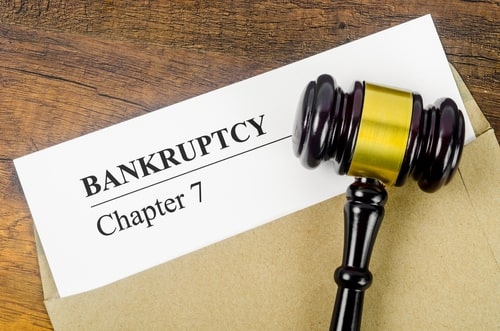 It is overwhelming to face a continuous debt pile despite your best efforts. Understanding what a liquidation bankruptcy involves can help you evaluate if this path - also called Chapter 7 bankruptcy - is the right fresh start, given your situation. A Texas bankruptcy lawyer can also help you determine if this is the best option for your circumstances.
It is overwhelming to face a continuous debt pile despite your best efforts. Understanding what a liquidation bankruptcy involves can help you evaluate if this path - also called Chapter 7 bankruptcy - is the right fresh start, given your situation. A Texas bankruptcy lawyer can also help you determine if this is the best option for your circumstances.
What is Chapter 7 Bankruptcy?
Chapter 7 refers to the U.S. bankruptcy code section dealing with total liquidation cases. It allows you to legally discharge qualifying debt you cannot repay, providing much-needed relief and letting you move forward less burdened. With Chapter 7, a court-appointed trustee sells your non-exempt assets and distributes proceeds to creditors. Any remaining unpaid debt gets erased.
How Does Chapter 13 Bankruptcy Work in Texas?
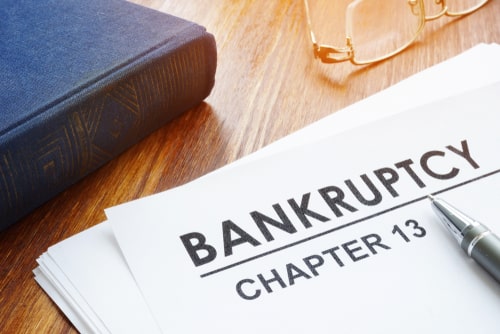 When debts snowball beyond control, Chapter 13 bankruptcy restructures finances, offering three to five-year repayment plans capped at what you can afford. This path preserves assets while discharging remaining balances upon completion. A Texas bankruptcy lawyer can help you structure the most ideal process for your situation.
When debts snowball beyond control, Chapter 13 bankruptcy restructures finances, offering three to five-year repayment plans capped at what you can afford. This path preserves assets while discharging remaining balances upon completion. A Texas bankruptcy lawyer can help you structure the most ideal process for your situation.
Filing the Petition
Everything begins by submitting your voluntary Chapter 13 bankruptcy petition to the bankruptcy court, documenting assets, debts, income, and expenses. This triggers an automatic stay halting foreclosure, repossessions, utility shut-offs, wage garnishment, and most collection harassment during proceedings. You keep property like cars and homes while the case wraps up.
Creating Your Repayment Plan
Next, you propose a repayment plan tailored to disposable income levels, assisted by your attorney. This lays out affordable monthly installments toward outstanding debts like credit cards, medical bills, personal loans, and past taxes. Payments are distributed to each creditor until the respective principal balances are reached, or the payments are completed—whichever happens first.
Filing for Bankruptcy as a Small Business Owner
 As a small business owner, facing severe financial struggles can feel overwhelming and stressful. You may reach a breaking point where bankruptcy starts to seem like the only way out from crippling debt obligations and creditor threats. Filing can provide temporary relief and protection. However, bankruptcy is not a cure-all solution and carries significant downsides as well.
As a small business owner, facing severe financial struggles can feel overwhelming and stressful. You may reach a breaking point where bankruptcy starts to seem like the only way out from crippling debt obligations and creditor threats. Filing can provide temporary relief and protection. However, bankruptcy is not a cure-all solution and carries significant downsides as well.
Carefully evaluating both the potential benefits and drawbacks and considering all alternative options first enables you to make the most informed choice for your business. A Texas lawyer can help you weigh the decision and help you.
The Financial Benefits of Filing for Bankruptcy
Filing for bankruptcy can provide financial relief for small business owners who are shouldering overwhelming company debt. It gives you time to reorganize your finances, catch up on debt, and create a plan to start paying it down going forward. Chapter 11 bankruptcy allows you to continue operating your business under the protection of an "automatic stay," so you do not have to worry about creditors seizing assets or filing lawsuits while working to get back on track.






